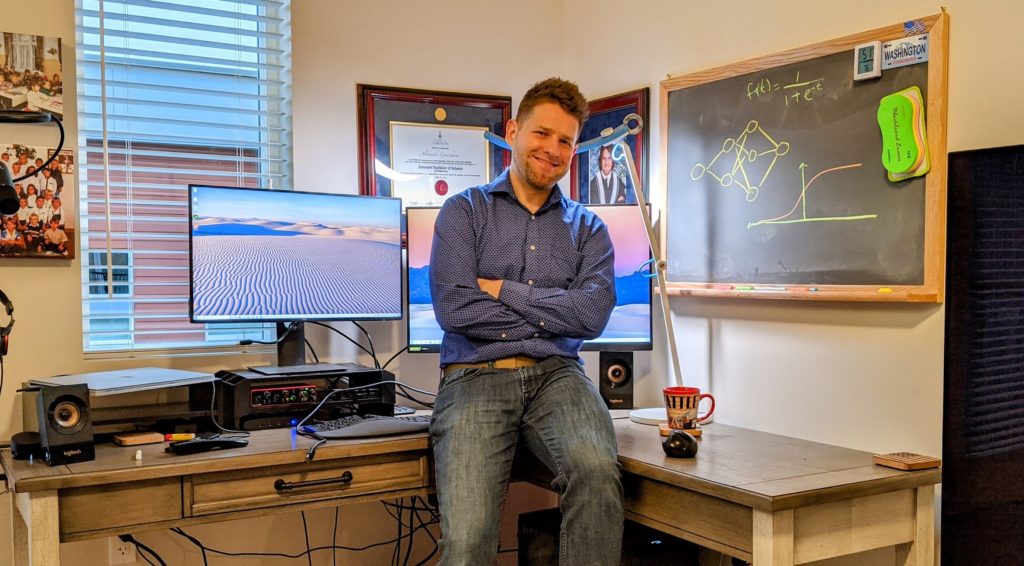How a Mathematician Found Career Satisfaction With Deep Learning
Name: Aleksandr Gontcharov
Title: Software Developer, Microsoft
Location: Seattle, WA
Education: Bachelor of Science, Mathematics from the University of Toronto; Master of Science, Mathematics from the University of Ottawa
Favorite ML area: I like the fundamentals of deep learning: gradient descent, optimization algorithms like Adam, and initializations. I believe there is a lot of research left in these fundamental areas and I hope to publish some papers.
Aleksandr Gontcharov is a software engineer at Microsoft. Early in his career, he moved from job to job, but none of them ever felt right. The Deep Learning Specialization helped him find his calling; he was hired for a machine learning role while still taking the courses. He spoke with us about why the Specialization was the spark that put his career in motion.

You’ve had a varied career in tech. Is your background in computer science?
My degree is actually in mathematics. Back in college, I thought I could just graduate and become an accountant, a programmer, or an engineer. But when I began looking for work, I found that they always wanted you to have a specialization. I landed some jobs, first as a web developer, then analyzing spreadsheets for a credit union, and then making statistical reports for the Canadian government. But I was not satisfied early in my career because I was constantly looking for more of a challenge.
What was it about the Deep Learning Specialization that grabbed your attention?
The Specialization was actually my second attempt to learn AI. At first, I attempted to learn through a book, but it wasn’t helpful and I lost interest [laughs]. Sometime later, my colleagues were talking about AI at work, which inspired me to look into courses on Coursera. When I started the Specialization, I was immediately hooked because Andrew Ng teaches like a university professor, which is my learning style. And what stood out to me was how Andrew always says, “Don’t worry if you don’t understand the math.” But I did understand the math! He was talking about matrices and other things I had studied in college. It felt like the perfect way to marry my background with something in demand.
How did the Specialization help you find a more satisfying job?
It helped in a lot of ways. When looking for jobs, your resume must show that you have the specific skills the employer is looking for. The Specialization allowed me to show that I knew about the different kinds of neural networks, how to train them, and that I was proficient with software and libraries related to AI.
Once I landed some interviews, I quickly realized that the Specialization had prepared me to speak with confidence on these topics. All that, plus my previous background working with data and my confidence in mathematics, allowed me to get my first AI job at a startup.

What were some of the most impactful courses from the Specialization?
At my first AI job, I did a lot of natural language processing. But when I was hired, I was only partially done with the Specialization and hadn’t yet gotten to the modules on NLP. I went through those courses while working and found that they were exactly what I needed to apply myself to my current role. When changing your career, there’s always the fear that you’ll be surrounded by people who know more than you. But the things I had learned helped to keep me from drowning.
Compared to where you were a few years ago, how satisfied are you with your career now?
My current job at Microsoft is the most challenging role I’ve ever had. I’m really honored to be asked to speak about the Deep Learning Specialization because I see it as a turning point in my career. It gave me a career that satisfies me and gave me a deep understanding of AI that can never be taken away from me.
Ready to #BeADeepLearner like Aleksandr? Enroll in the Deep Learning Specialization
You can find Aleksandr Gontcharov on LinkedIn.